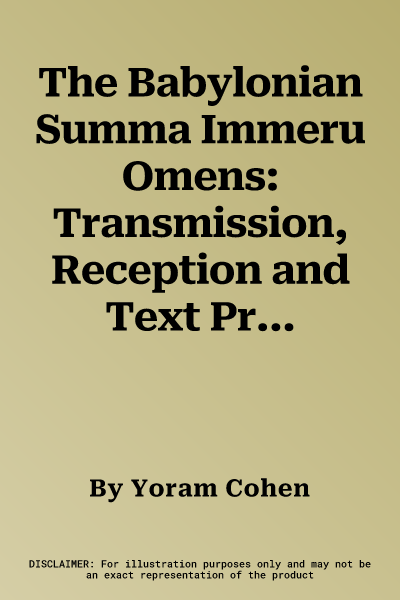Yoram Cohen
(Author)The Babylonian Summa Immeru Omens: Transmission, Reception and Text ProductionHardcover, 4 December 2020

Qty
1
Turbo
Ships in 2 - 3 days
Only 4 left
Free Delivery
Cash on Delivery
15 Days
Free Returns
Secure Checkout

Print Length
430 pages
Language
English
Publisher
Zaphon
Date Published
4 Dec 2020
ISBN-10
396327042X
ISBN-13
9783963270420
Description
Product Details
Author:
Book Format:
Hardcover
Country of Origin:
US
Date Published:
4 December 2020
Genre:
Ancient (To 499 A.D.)
ISBN-10:
396327042X
ISBN-13:
9783963270420
Language:
English
Location:
Muenster
Pages:
430
Publisher:
Weight:
2000.34 gm